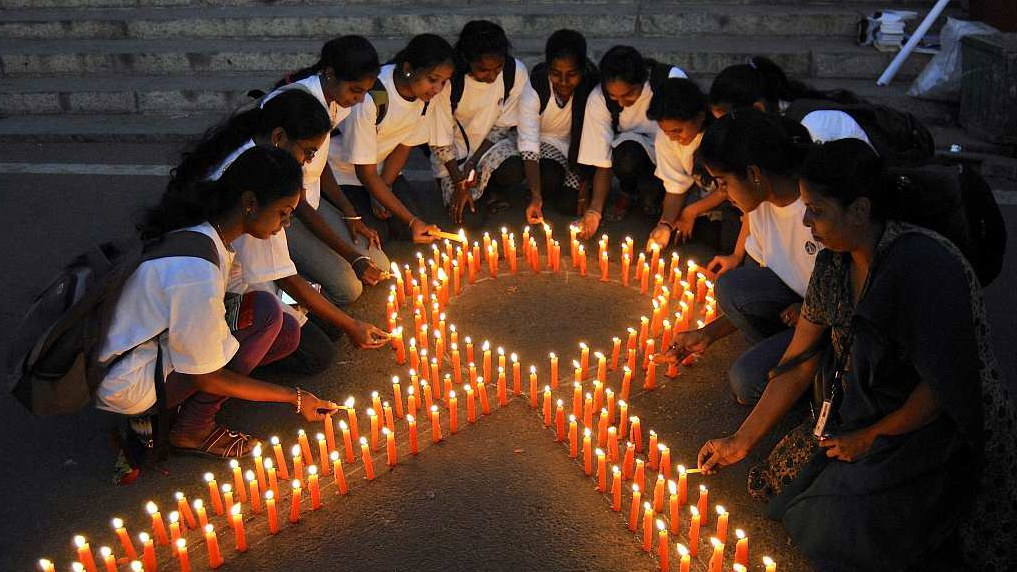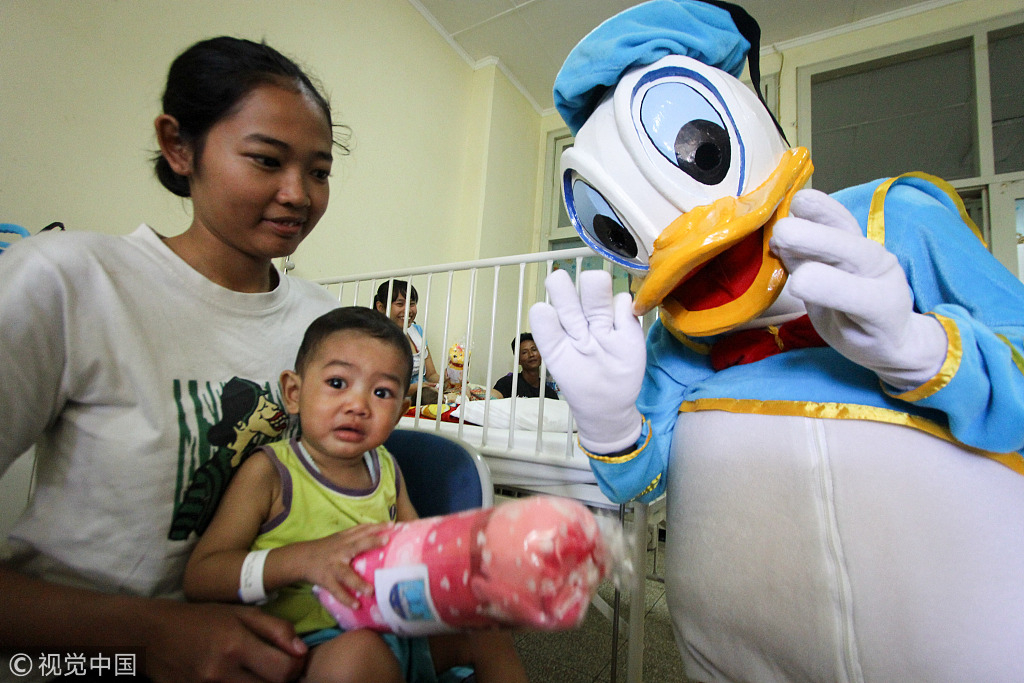
Opinion
09:51, 04-Feb-2019
Mindset shift: Individual commitment to cancer prevention
Dr. Hu Kun

Editor's note: Dr. Hu Kun is deputy secretary-general of the Academic Advisory Committee, Cancer Rehabilitation Society, Chinese Anti-cancer Association. The article reflects the author's opinion, and not necessarily the views of CGTN.
World Cancer Day is a campaign meant to inspire change and mobilize action. Its theme for 2019 is "I am and I will."
Cancer is now becoming a major public health problem in China. With one-fifth of the world's population, China now takes up 22 percent of new cancer cases and 27 percent of cancer deaths worldwide.
More importantly, China's cancer spectrum is significantly different from that of developed countries. The 4 most common cancers diagnosed in China are lung, stomach, liver, and esophageal cancer.
These cancers account for 57 percent of the cancers diagnosed in China, compared with 18 percent in the United States. Also, these cancers diagnosed in China comprise between one third and one-half of the global incidence burden from lung, stomach, liver, and esophageal cancers.

VCG Photo
VCG Photo
In comparison, the most common cancers diagnosed in the United States are cancers of the lung, breast, prostate, and colorectum. The most common cancers in China are those that have rather poor survival rate; whereas those in the United States, with the exception of lung cancer, are dominated by cancers with a good prognosis, and, for prostate and breast cancers, the incidence may be inflated by diagnostic activities linked to early detection and screening.
The difference in cancer type distribution contributes significantly to the difference in mortality rate.
Of course, the situation is also in the change. In the past, the living conditions in China were poor, and thus the incidence of so-called “cancer of poverty” such as liver cancer, stomach cancer and cervical cancer caused by chronic infection was high.
Nowadays, “cancer of poverty” has decreased due to improved living conditions. However, the incidence of the so-called "cancer of affluence", such as lung cancer, breast cancer, colorectal cancer and pancreatic cancer, has been increasing rapidly due to the growth of living standards and changes in diet, lifestyle, etc. The fundamental mechanism of affluence-related cancer is complicated.
Yet, some studies have shown that breast cancer, colorectal cancer, and pancreatic cancer are rather associated with eating high fat and high protein food, and physical inactivity.
In addition, modern people, especially those office workers in large cities, work under pressure, lead a busy life and suffer from physical and mental sub-health, which also, to some extent, contributes to the increasing incidence of affluence-related cancer. While "cancer of poverty" has not yet been fully controlled, "cancer of affluence" has already hit the country.
China now has to fight a two-front war against cancer, and the situation is very serious. The high cancer death rate in China can be contributed by factors such as weak awareness of cancer prevention and screening and limited diagnostic tools. At the same time, with the increased aging population, environmental degradation and food safety issues, the incidence of cancer in China has seen an upward trend for many years.
China is a country with a high incidence of stomach cancer. In 2015, there were 680,000 new stomach cancer cases and 500,000 deaths, accounting for nearly one-third of all cancers in China.
On average, nearly 1,364 patients died of stomach cancer every day, and that is six people every minute. Both the stomach cancer patients and deaths in China account for approximately 50 percent of the global total.
In China, more than 80-90 percent of patients with stomach cancer are in advanced stage at the time of diagnosis, and the rate of early detection is only 7-10 percent, which results in a 5-year survival rate of less than 30 percent.

Indonesian healthcare professional wears Disney character Donald Duck costume while delivering gifts to cancer patient during the event on World Cancer Day at the Kariadi Hospital in Semarang, Indonesia, February 4, 2015. /VCG Photo
Indonesian healthcare professional wears Disney character Donald Duck costume while delivering gifts to cancer patient during the event on World Cancer Day at the Kariadi Hospital in Semarang, Indonesia, February 4, 2015. /VCG Photo
Japan and China are both East Asian countries with a high incidence of stomach cancer. With similar lifestyles, the Japanese have a higher incidence of stomach cancer than Chinese.
However, Japan is the country with the highest recovery rate of stomach cancer in the world. Japan's 5-year stomach cancer survival rate can reach 80 percent, mostly because early screening is available for its whole population.
The slogan of Japan's cancer detection is “the sooner cancer is detected, the better it is treated”. Since 1990, approximately 6 million people in Japan have attended the screening for stomach cancer annually, and gastroscopy is a mandatory part of health check-ups for people aged 40 or above.
In this way, the risk factors and precancerous lesions of gastric cancer (PLGC) are constantly monitored, and the cancer is detected and then treated at its early stage by regular gastroscopy examinations.
How will China deal with the serious problem of cancer? While seeking new multidisciplinary treatments, we need to learn how to prevent and screen cancer.
The successful experience of stomach cancer prevention and control in Japan is a good reference. We need to raise awareness of cancer prevention and screening, improve comprehensive treatment of cancer, and enhance medical services in rural areas. The government must make policies to build a national cancer prevention and control system and emphasize on individuals' role in cancer prevention.
The government should also increase its investment and strengthen its supervision over national cancer prevention funds. We need a shift of mindset to change from taking an early cancer screening to applying professional early prevention and control techniques. We should raise the awareness of the public for cancer prevention and taking proactive approach to warn against the risks of cancer-causing habits. By doing so, we can prevent and control cancer with lower costs.
(If you want to contribute and have specific expertise, please contact us at opinions@cgtn.com.)

SITEMAP
Copyright © 2018 CGTN. Beijing ICP prepared NO.16065310-3
Copyright © 2018 CGTN. Beijing ICP prepared NO.16065310-3